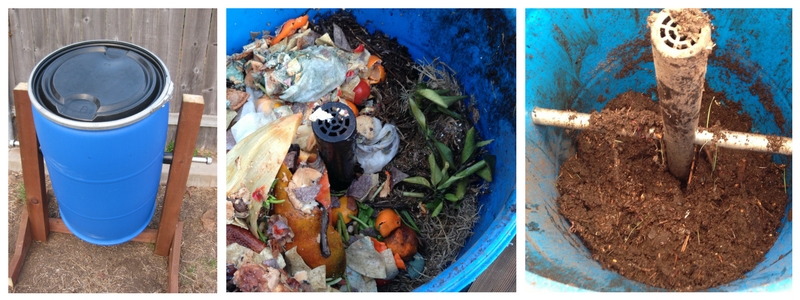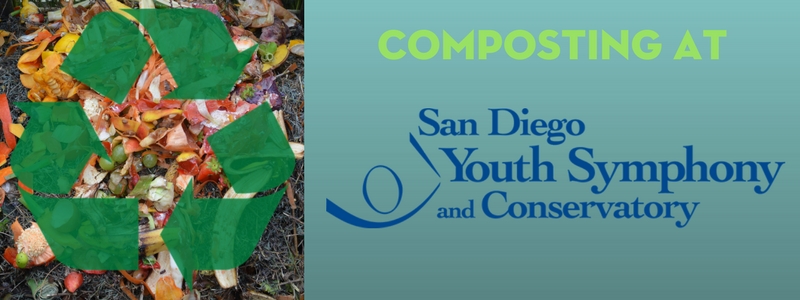2018 Balboa Park Sustainability Award Winner
The arts and culture organizations within Balboa Park range in size from a staff of two to the largest with over 300 employees. We get excited when we can spotlight the sustainability initiatives in the small-but-mighty organizations because they usually face the biggest challenges with limited staff, time, space and budgets. The San Diego Youth Symphony and Conservatory runs with a staff of 45 employees. The organization has been around since 1945 and serves as the region’s leading youth music program to over 600 participants.
The San Diego Youth Symphony proves that arts and culture organizations can be environmentally-conscious leaders in sustainability. Amber Weber, Deputy Director, and Anji Taylor, Communications Coordinator at the San Diego Youth Symphony have taken the lead in diverting food and paper waste from the office. For Amber and Anji, composting started as a personal effort to divert waste and create healthy soil. Amber and her husband Mark first were introduced to composting through the use of a worm bin. Worms are great for composting and do most of the work for you! Not all worms can be used in worm bins though, they usually require worms called Red Wigglers, since they do best in an enclosed bin environment.
A challenge that the staff at the San Diego Youth Symphony face is limited space. Composting cannot be done on-site so Amber and Anji take bags of shredded paper home to process in their home composting systems. As explained by Amber, “You need a healthy mix of “greens and browns.” “Greens” refer to food waste, rich in nitrogen, and “browns” mean dried leaves, straw, or paper, rich in carbon.” Having limited amounts of landscaping browns to balance their compost tumbler, Amber and Mark use shredded paper to compensate. Amber has been using the office shredded paper for composting since she started at the San Diego Youth Symphony in 2015.

Anji was introduced to composting by her “organic gardening mom” when she was a teenager and has been doing it for 20 years! Anji shared a lot of great knowledge from her years of experience. Usually, she would use straw as her “browns” in her composting, but found that shredded paper is less toxic than straw, which can contain high levels of pesticides and herbicides. She mentions that non-glossy printer and copier paper contain dyes that are safe to add in composting. In addition, Anji keeps a container in the office refrigerator for fruit and vegetable waste from snacks and lunches in the office, which she also adds to her composting as the “green” element.
The dedicated San Diego Youth Symphony staff are helping tackle food waste, which is a big issue not only regionally but also nationally. Forty percent of food in America is wasted which averages to nearly 300 pounds of food waste per person, per year. Coincidentally, 41% of the total waste entering the City of San Diego’s Miramar Landfill is compostable. With the only City run landfill facing closure by 2030, residential food waste diversion takes on a big role in extending the life of the landfill. Currently, the Miramar Greenery composting program run by the City of San Diego has extended the closing date of the landfill, but food waste diversion efforts by residents needs to increase drastically. Individual food waste diversion measures are increasingly attainable, as more composting products, rebates and programs are becoming available.
Composting has additional benefits, such as: improving soil health, increased water retention for less frequent watering, and money savings attributed to these byproducts. The composting process also helps prevent methane release, a potent greenhouse gas.
To follow San Diego Youth Symphony’s example of composting paper and food waste visit Solana Center’s website, or look into Food2Soil’s program if you’re unable to compost at home. Also, check out SavetheFood.com for ways to reduce your food waste.

